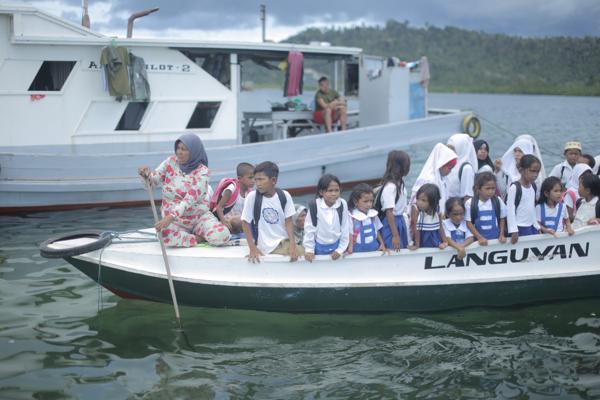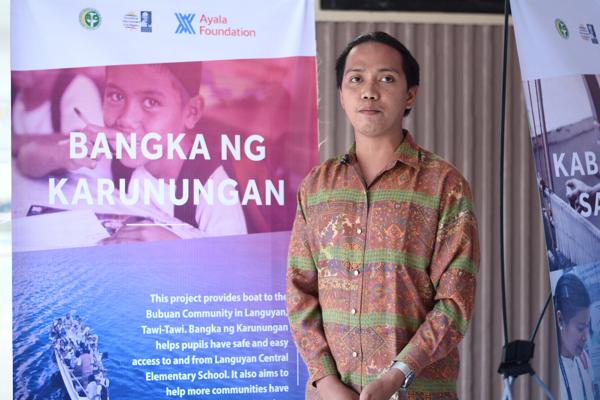In a place where children need to ride a bangka (small wooden boat) to cross 60 to 100 meters of a crocodile-infested river to get to school, the record of classroom attendance is as dismal as it can get.
With bangkas that are too small and fragile to withstand raging waters, several accidents involving school children have happened during bad weather.

Generally, teachers point to the lack of safe transportation as the main cause of absences especially during the rainy season. Dropping out of school in the middle of the school-year was common to the young of this place. Consequently, many of them are unable to complete basic education.
To the people of Bgy. Darul-Akram in Languyan, Tawi- Tawi, this used to be a way of life. Having had the problem for so long, they have somehow accepted the situation until a group of Bangsamoro young leaders came along.
Taus-Spartan (for Tausug- Spartan) whose members are young community leaders from Tawi-Tawi, saw that something must be done.
“We talked to teachers, parents, barangay leaders and other members of the community and found out that this was one of their biggest concerns. Traversing the river to get to school was an everyday risk the children had to take. And the presence of saltwater crocodiles made it even worse,” said the leader of Taus-Spartan, the 23-year-old Vincent Durie.

Vincent was a fellow of the Bangsamoro Young Leaders Program–Leadership Communities (BYLP–LeadCom), a program developed by Ayala Foundation, in partnership with the ARMM regional government and the Eisenhower Fellows Association of the Philippines. For years, Ayala Foundation has been actively empowering young leaders nationwide.
Together with other stakeholders, the LeadCom group was able to secure a grant for a two-engine boat from the local Bureau of Fisheries and Aquatic Resources (BFAR).
They named the boat “Bangka ng Karunungan” (Boat of Knowledge), fulfilling a two-pronged objective of helping both high school students and grade school pupils go to school safely, while providing the fishing community an alternative means of livelihood during off-school days and during hours when the children are still in class.
With capacity to ferry at least thirty people in one trip, it plies the route from the island barangay to the nearest sitio where school is located, at least thrice a day, thus enabling children to reach school safely and on time.
Today, 99 percent of the children from Darul-Akram are logging in regular classroom hours. The school and the barangay have also agreed to collaborate on maintainance and repairs of ‘Bangka ng Karunungan.’
In the meantime, Vincent and his LeadCom cohorts are looking for other ways to expand the project in the area of livelihood, together with their partners.
“This is our group mind set: ‘Don’t tell people your dreams. Show them,’” Vincent says, as he continues to encourage students, particularly the Badjao, to stay in school.
